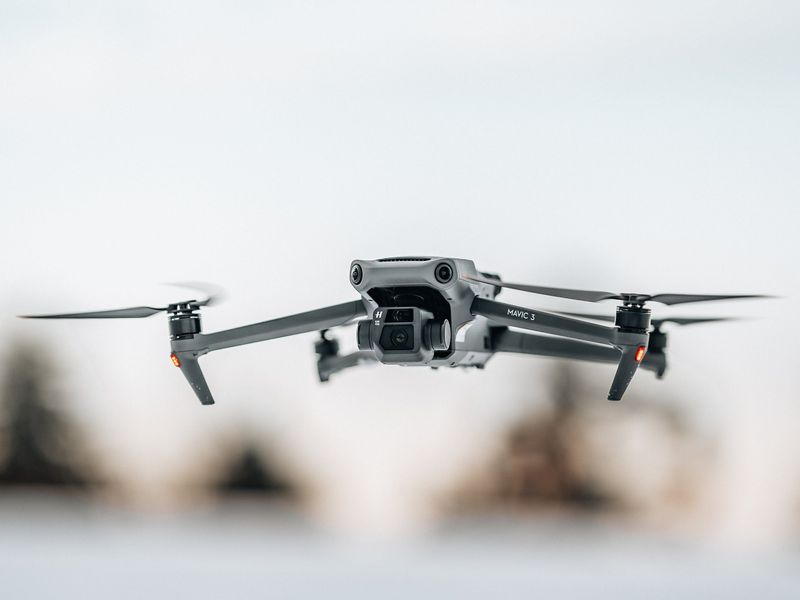Carmakers Fail Privacy Test, Giving Owners Little or No Control on Personal Data They Collect
A Disturbing Revelation
A recent study conducted by the nonprofit Mozilla Foundation has revealed that carmakers are failing to protect the privacy of their customers and are giving little to no control over the personal data they collect. The study, titled “Privacy Not Included,” found that most major car manufacturers not only admit to selling personal information but also are willing to share it with the government or law enforcement without a court order. This revelation is deeply disturbing and raises concerns about the rights of car owners and the invasion of their privacy.
Data Collection and Lack of Control
The proliferation of sensors in automobiles, from telematics to fully digitized control consoles, has turned cars into prodigious data collection hubs. Despite this, drivers have very limited control over the personal data their vehicles collect. The study’s research lead, Jen Caltrider, emphasizes the lack of options for car buyers who want to protect their privacy. Unless they choose a used, pre-digital model, consumers have no real choice in the matter.
Furthermore, the security standards in car manufacturing are often vague, leaving vehicles susceptible to hacking and unauthorized access. This lack of security is especially concerning considering the sensitive conversations that take place within cars, which are equipped with microphones and cameras facing both inward and outward.
Cars Scored Worst for Privacy
Among the more than a dozen product categories studied by Mozilla since 2017, cars scored the worst for privacy. Out of the 25 car brands whose privacy notices were reviewed, not a single one met the minimum privacy standards set by Mozilla. This is in stark contrast to other sectors, such as mental health apps, where 37% of the reviewed apps met the minimum privacy standards.
The study found that 19 automakers openly admit they can sell customers’ personal data, while half of them are willing to share this information with the government or law enforcement upon request, without the need for a court order. Only two brands, Renault and Dacia, offer drivers the option to have their data deleted, but these brands are not available in North America.
Your Car as a Surveillance Space
The current state of car privacy raises valid concerns about the invasive nature of data collection in vehicles. Albert Fox Cahn, a technology and human rights fellow at Harvard’s Carr Center for Human Rights Policy, aptly describes cars as “wiretaps on wheels.” The electronic systems that consumers pay a premium for are collecting vast amounts of data on them and their passengers, turning their privacy into a corporate surveillance space.
Industry Response
The Alliance for Automotive Innovation, a trade group representing most car and light truck manufacturers in the U.S., has taken issue with the characterization of cars as surveillance spaces but stated that they share the goal of protecting consumer privacy. They advocate for a federal privacy law, claiming that the current patchwork of state privacy laws creates confusion and makes compliance difficult. However, the absence of such a law allows for connected devices and smartphones to amass data for targeted advertising, potentially increasing the risk of cybersecurity breaches and information theft.
The Need for Greater Regulation and Consumer Awareness
The findings of this study emphasize the urgent need for greater regulation and transparency in the automotive industry when it comes to data privacy. The 27-nation European Union’s General Data Protection Regulation and California’s Consumer Privacy Act are steps in the right direction, forcing carmakers to provide information about their data collection practices. However, more needs to be done to protect consumer rights and ensure that privacy is not sacrificed in the name of technological advancements.
Editorial: Protecting Consumers in the Digital Age
The revelations from this study further highlight the need for comprehensive privacy laws that encompass all aspects of our lives, including our vehicles. As technology continues to evolve, it is crucial that lawmakers prioritize the privacy and data protection rights of individuals. Car manufacturers must be held accountable for their negligent practices and prioritize the privacy and security of their customers.
It is also essential for consumers to be more aware of the data collection and privacy practices of the products they use. Understanding privacy policies, asking questions, and advocating for stronger privacy protections are integral steps in safeguarding personal data. Additionally, supporting organizations like the Mozilla Foundation, which champion open-source, public interest technologies, can encourage industry leaders to prioritize privacy.
Conclusion
The lack of privacy control and data protection in the automotive industry is a cause for concern. As cars become increasingly connected and technologically advanced, the potential for invasion of privacy grows. It is imperative that regulators, car manufacturers, and consumers come together to address these issues and ensure that privacy and data protection are prioritized in the digital age. Without proper safeguards and regulation, individuals’ personal data will continue to be exploited and their privacy compromised.

<< photo by Lianhao Qu >>
The image is for illustrative purposes only and does not depict the actual situation.
You might want to read !
- Ukraine’s CERT Foils APT28’s Attack on Energy Infrastructure: A Crucial Cybersecurity Success
- The Pervasive Threat: Unveiling the Rampant Use of High-Grade Phishing Kits in Targeting Microsoft 365 Accounts
- Data Disaster: LockBit Exposes Classified Information Pilfered from UK Defense Contractor
- California’s Privacy Battle: Protecting Personal Data vs Business Interests
- The Dangers of Twitter’s Collection of Users’ Biometric Data
- Fashion Retail Giant Forever 21 Suffers Massive Data Breach, Leaving Half a Million Customers at Risk
- Rethinking Cybersecurity: Unveiling the MinIO Storage System Breach
- Exploring the Rising Threat: Vietnamese Cybercriminals Exploit Facebook Business Accounts with Malvertising
- The Accountability Debate: Senior IT Professionals and Professional Decisions
- “India’s Digital Personal Data Protection Bill: A Bold Step Towards Safeguarding User Privacy”
- Data Privacy Protection Act: Banning Data Broker Sales to Government Agencies Gains Momentum
- United Airlines Outage: A Closer Look at the Cause and its Implications
- The Evolving Landscape of Cloud Security: Exploring the Projected $62.9B Market by 2028
- 7 Million Users Potentially Exposed: Exploring the Freecycle Data Breach
- The Rise of Non-Employee Risk Management: Protecting Against Third-Party Threats
- The Rise of Ransomware: A New Light Shines with Free Key Group Decryptor
- Apple’s iPhone 14 Pro: Opening Pandora’s Box of Hacking Opportunities
- Title: Unleashing the Power: Apple iPhone 14 Pro Opens Doors to Hacking Community
- Privacy Breached: Unveiling Cyber Attacks on Linux, Android, and Skype
- Google Fails to Escape Lawsuit Over Privacy Breach in Incognito Mode
- “Fitness App Privacy Breach: How a Loophole Led to Revealing Home Addresses”




